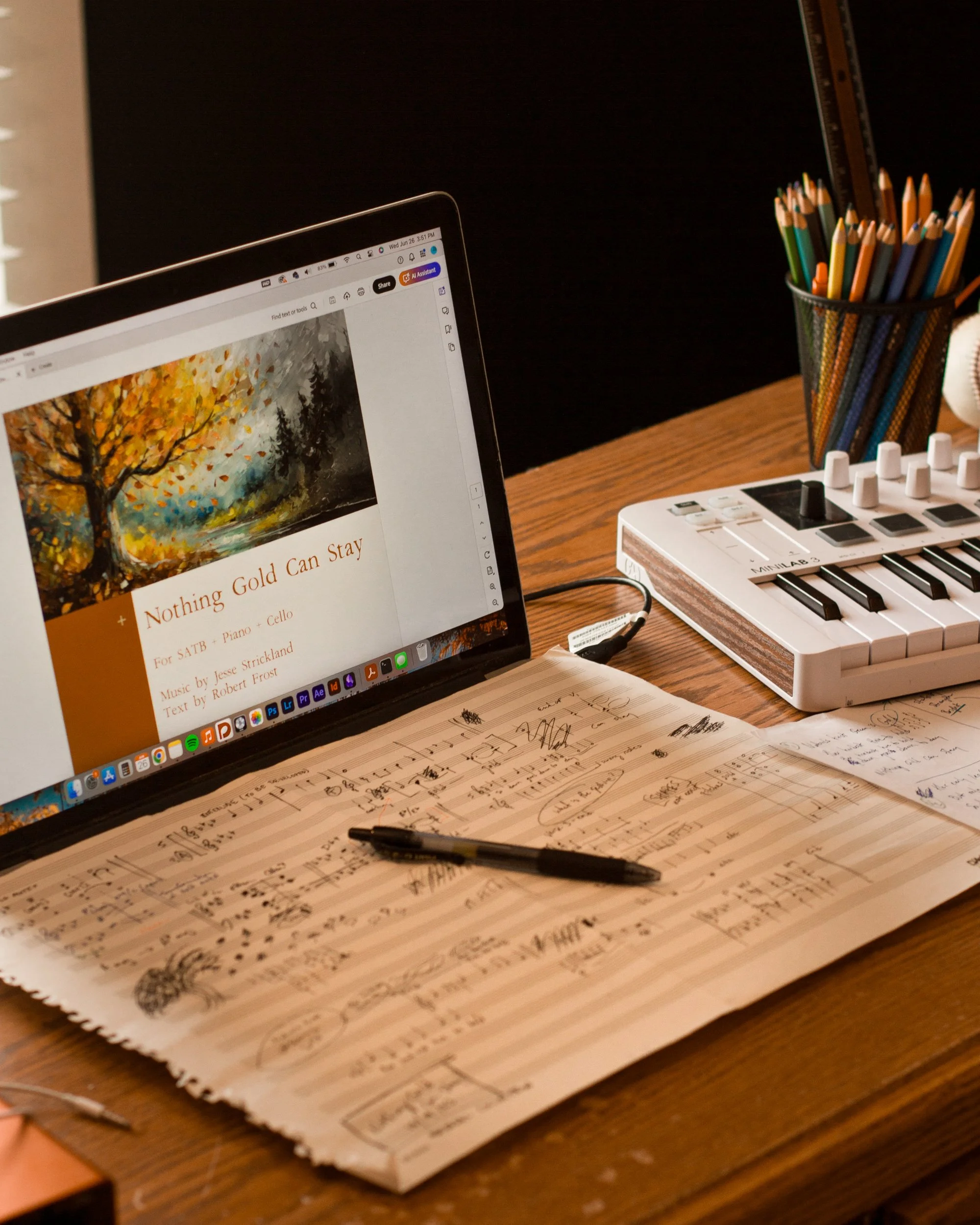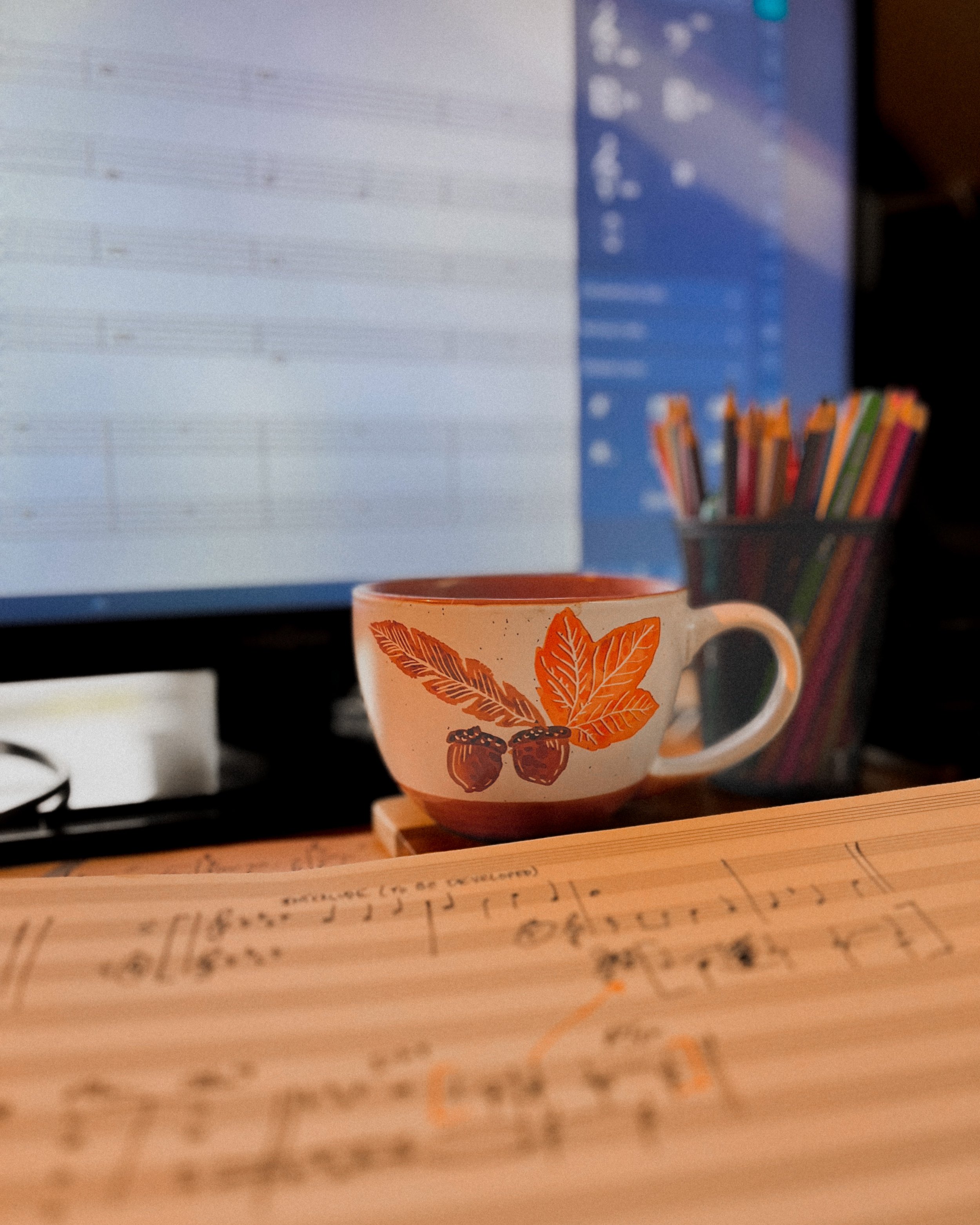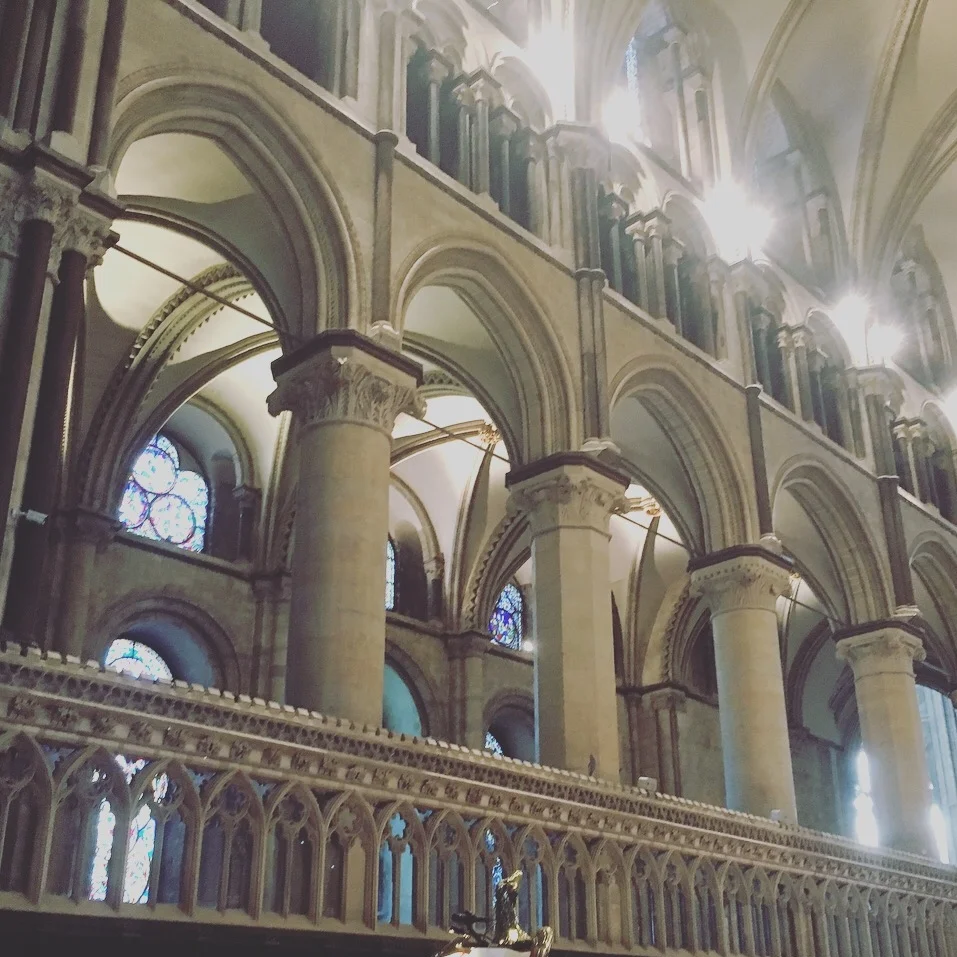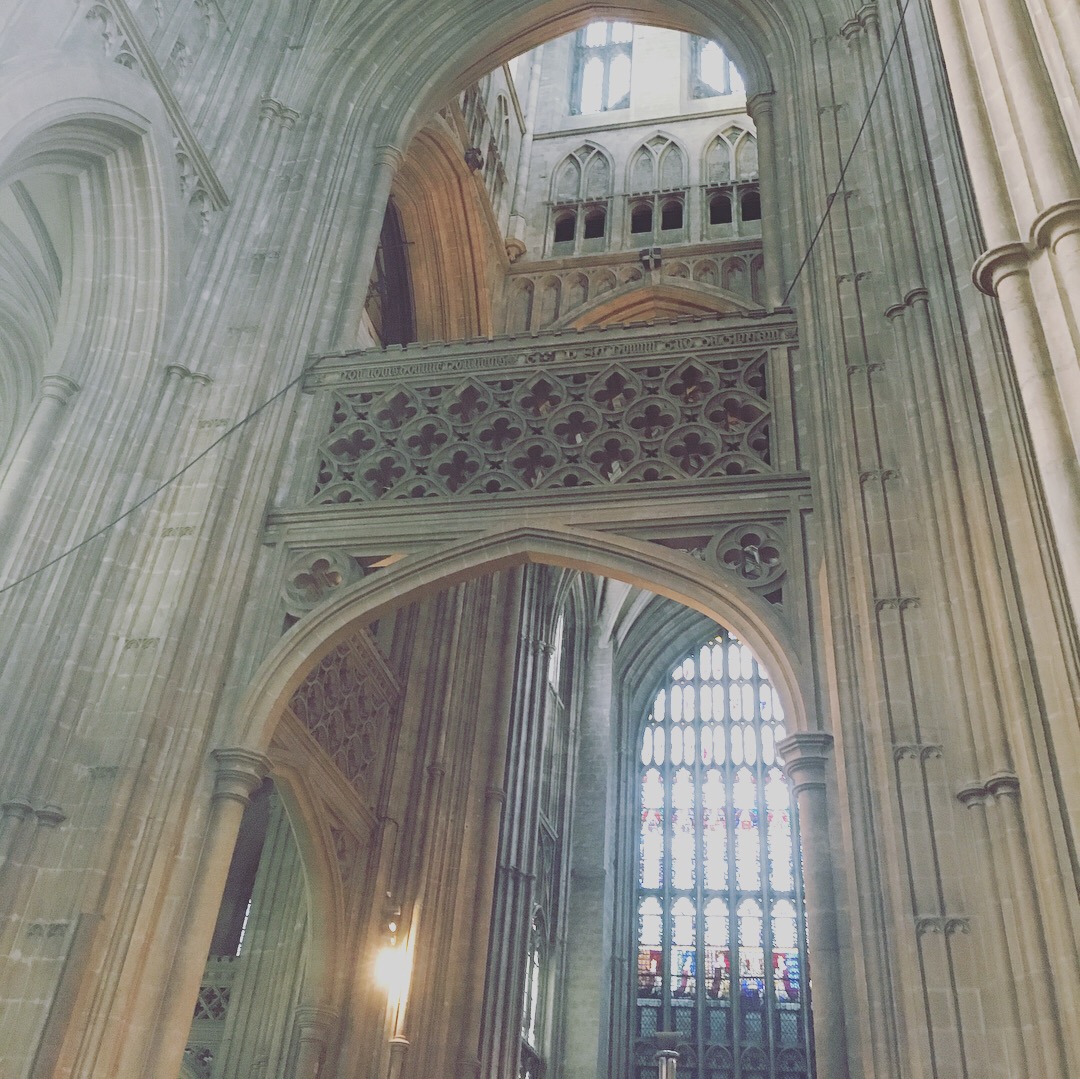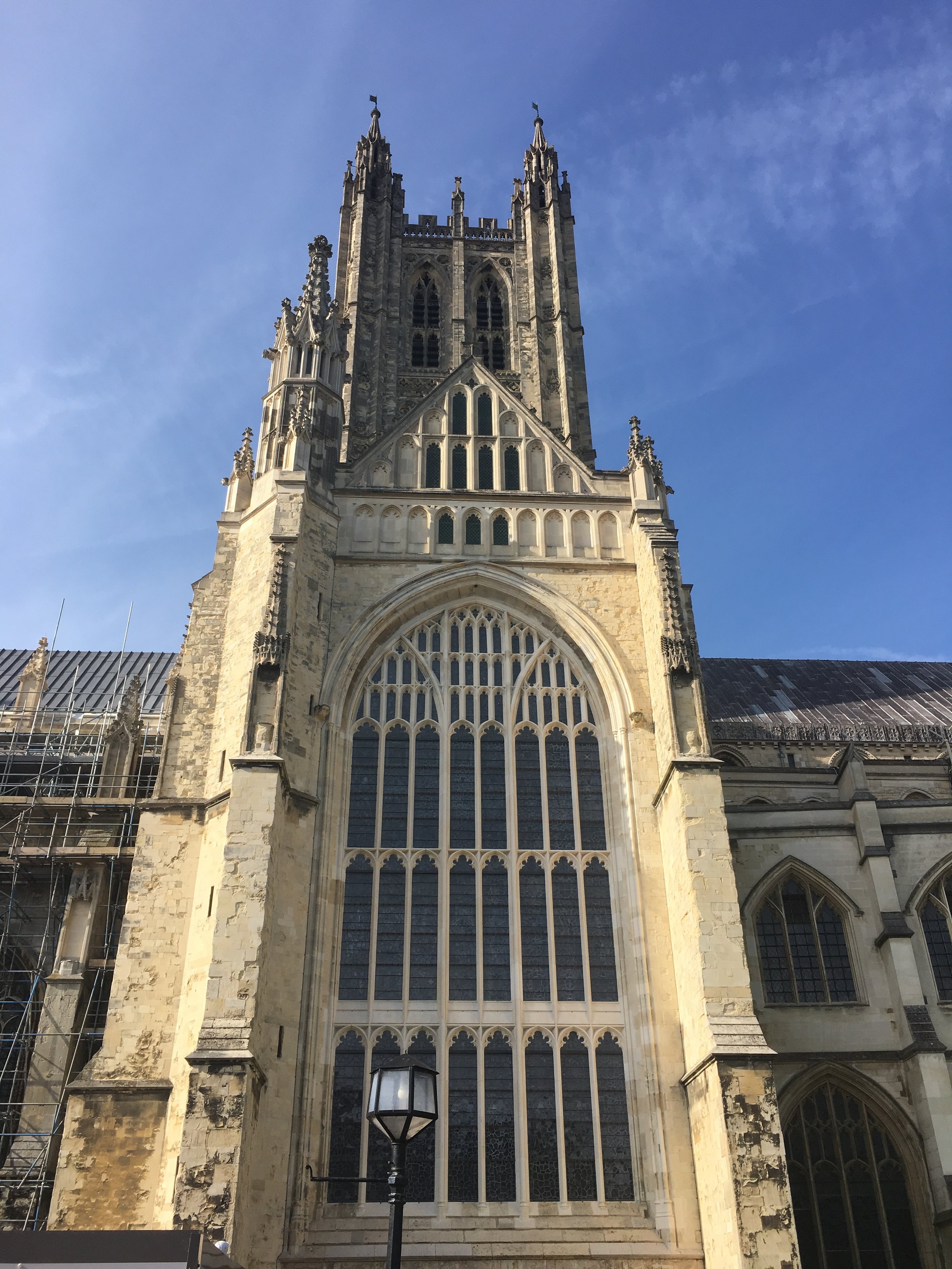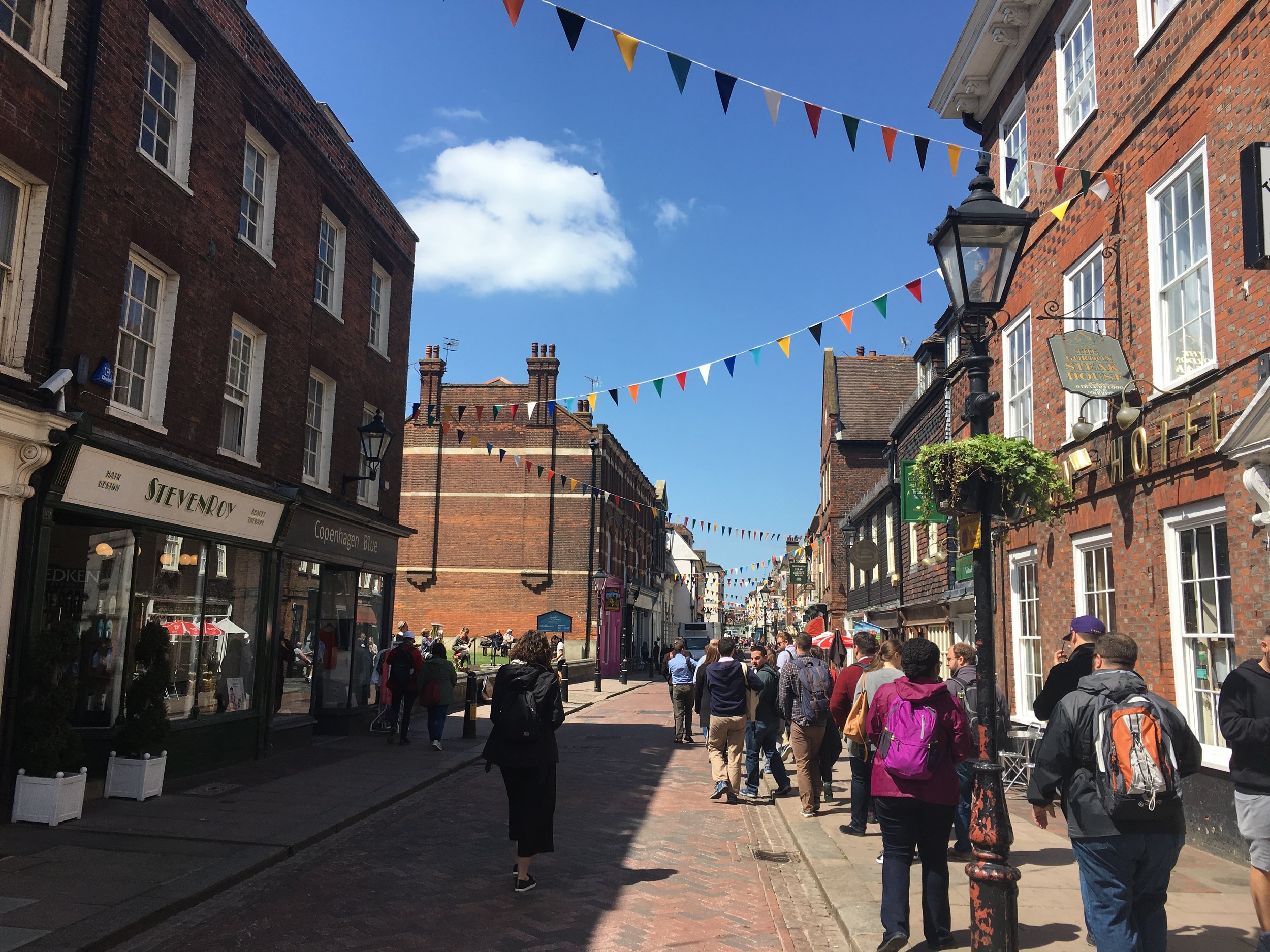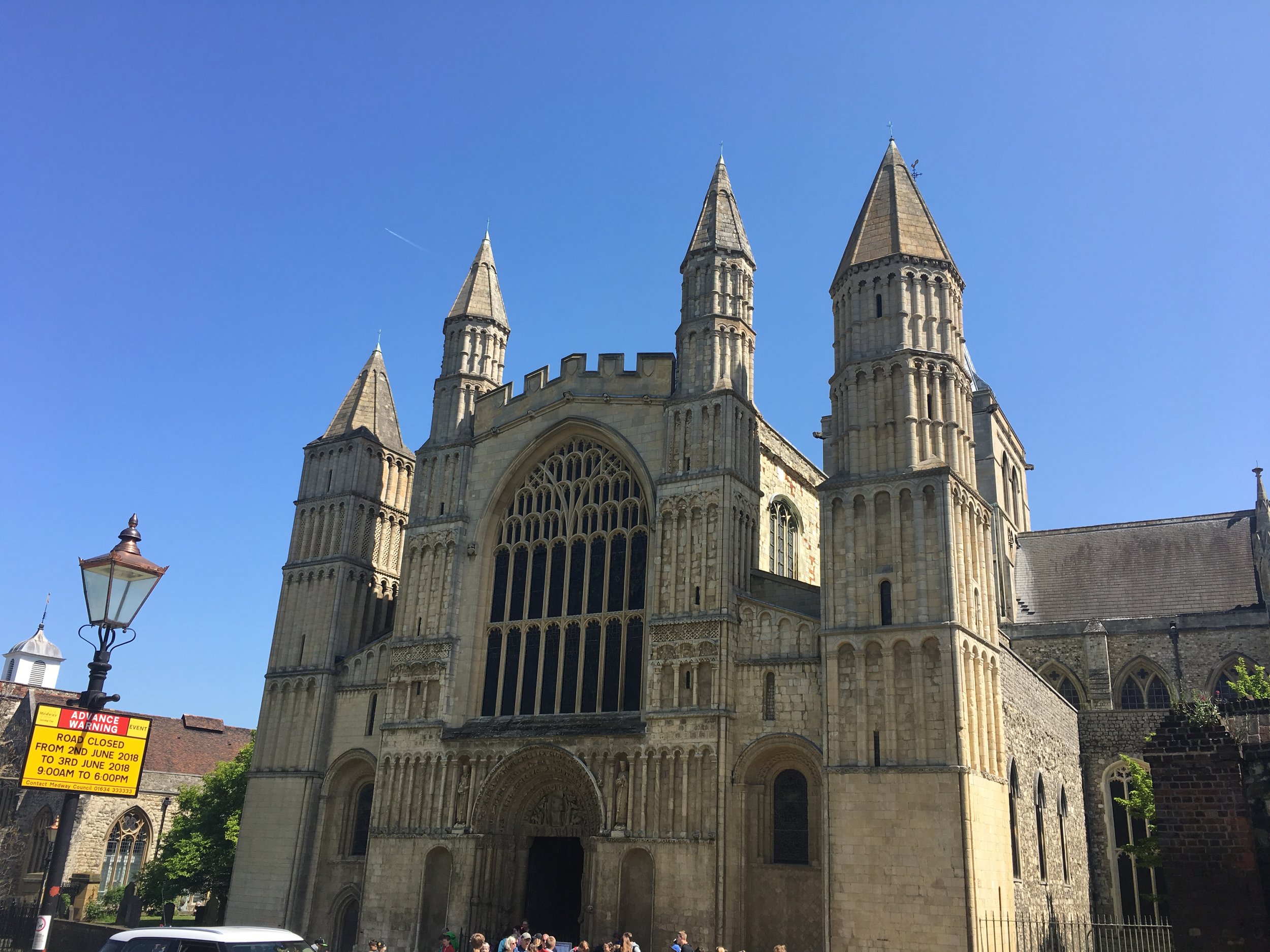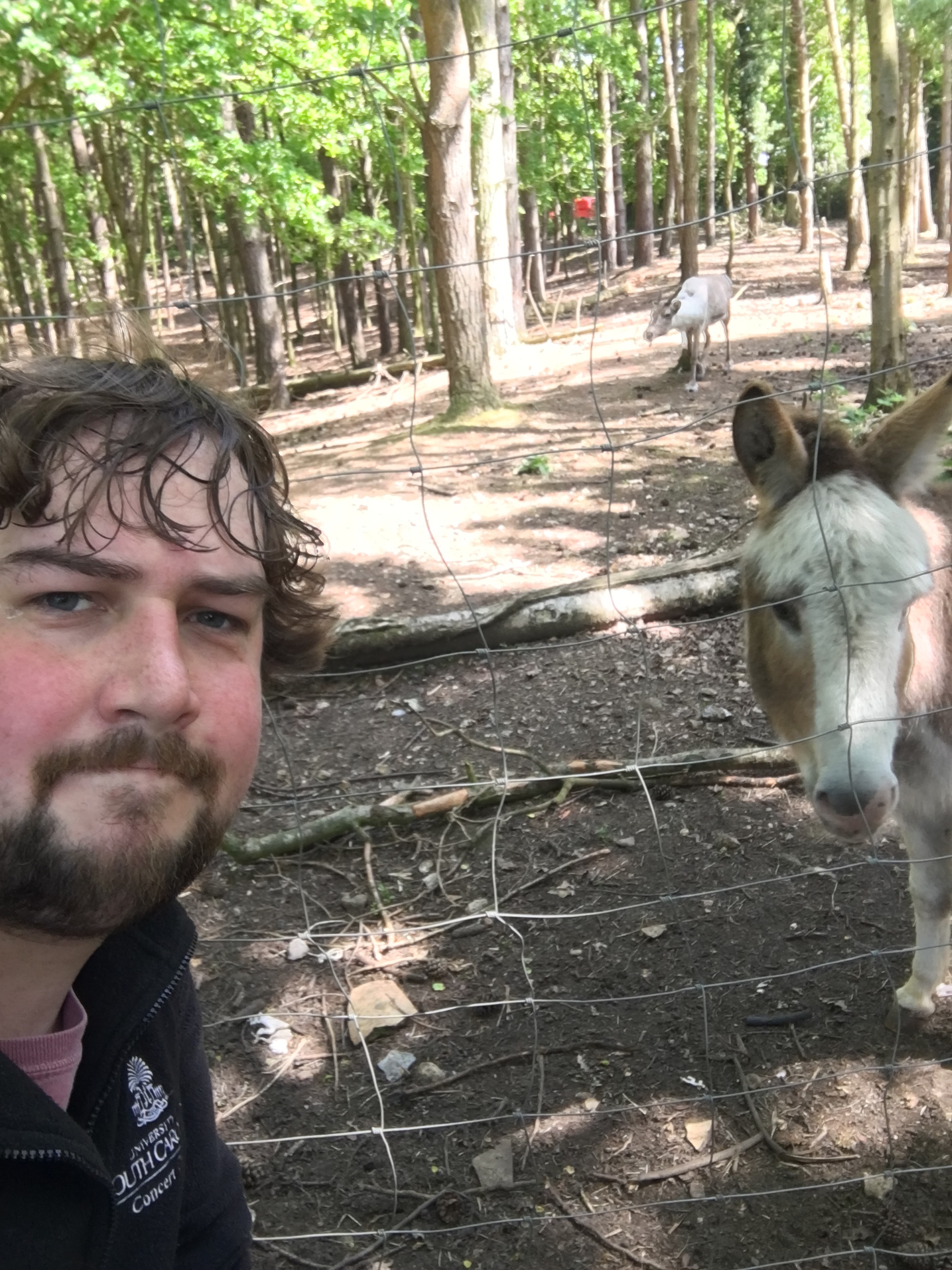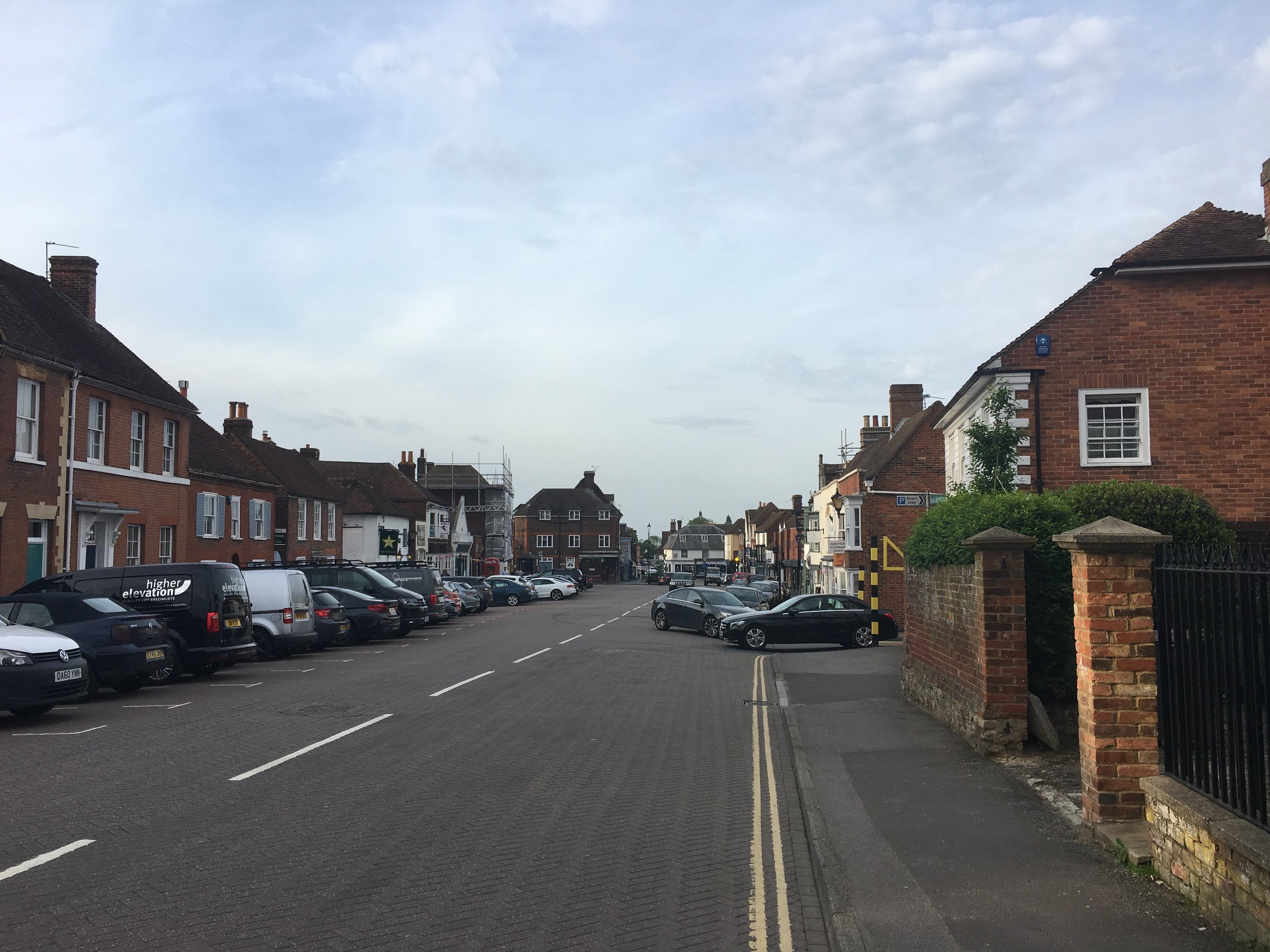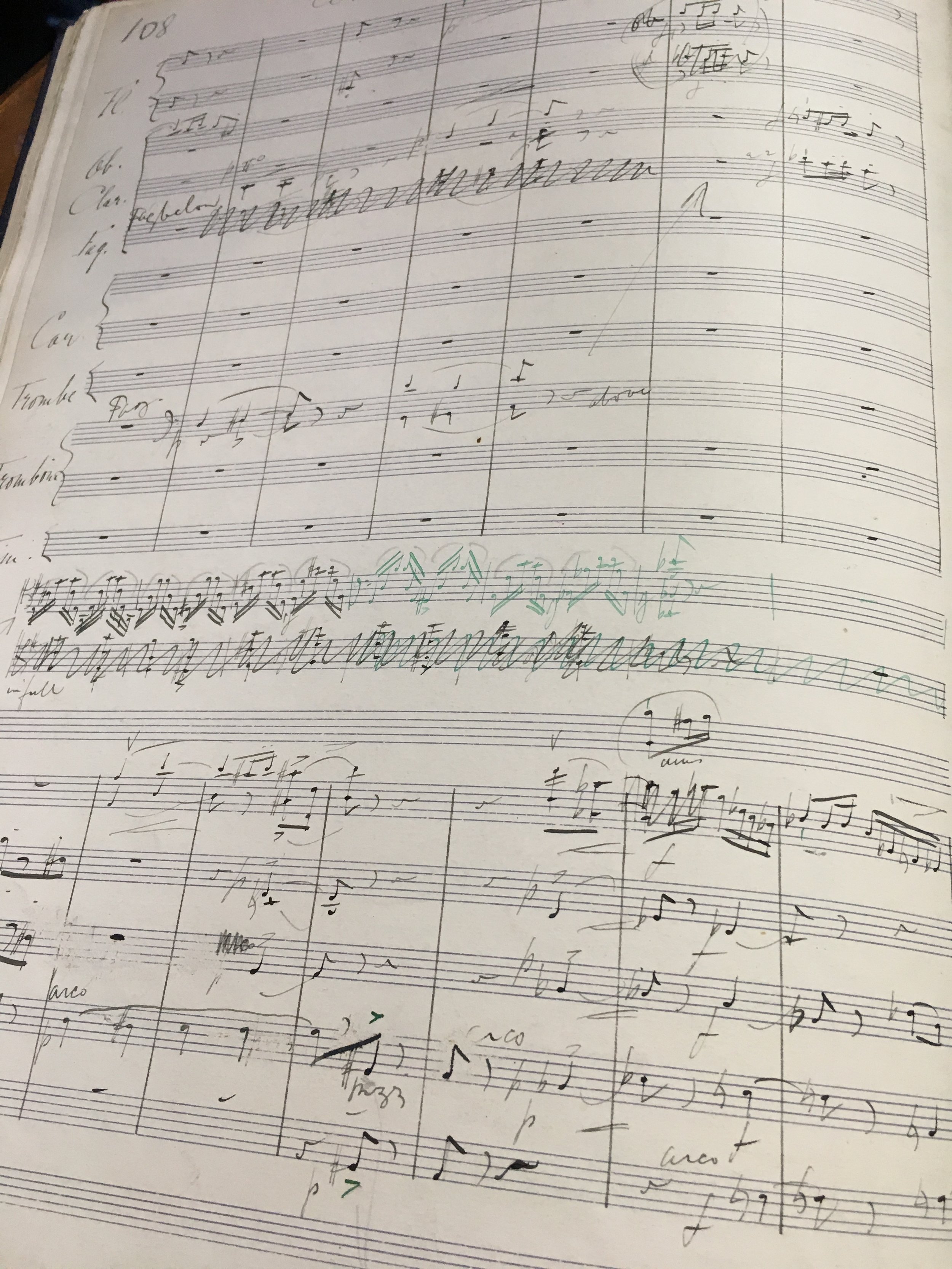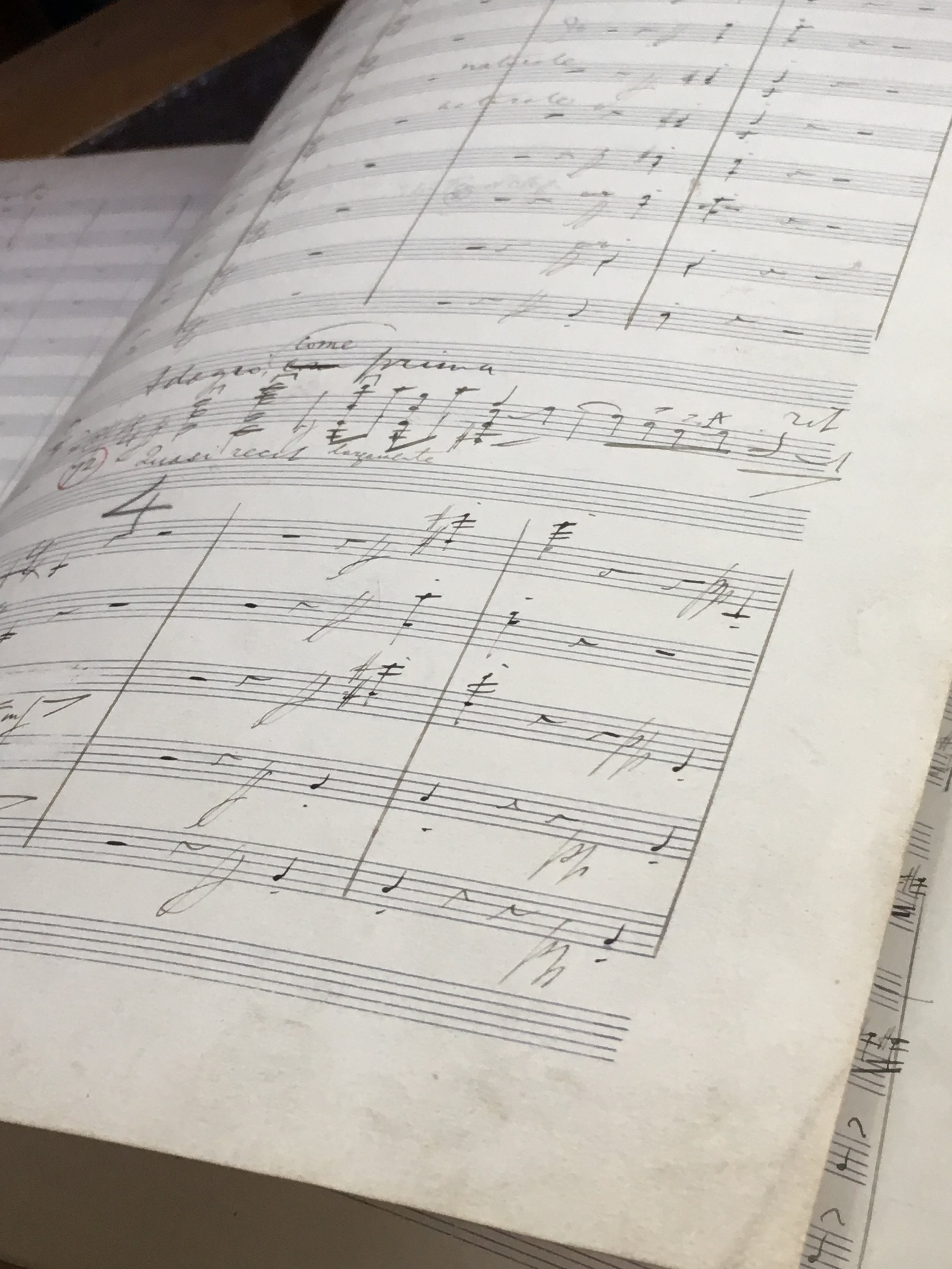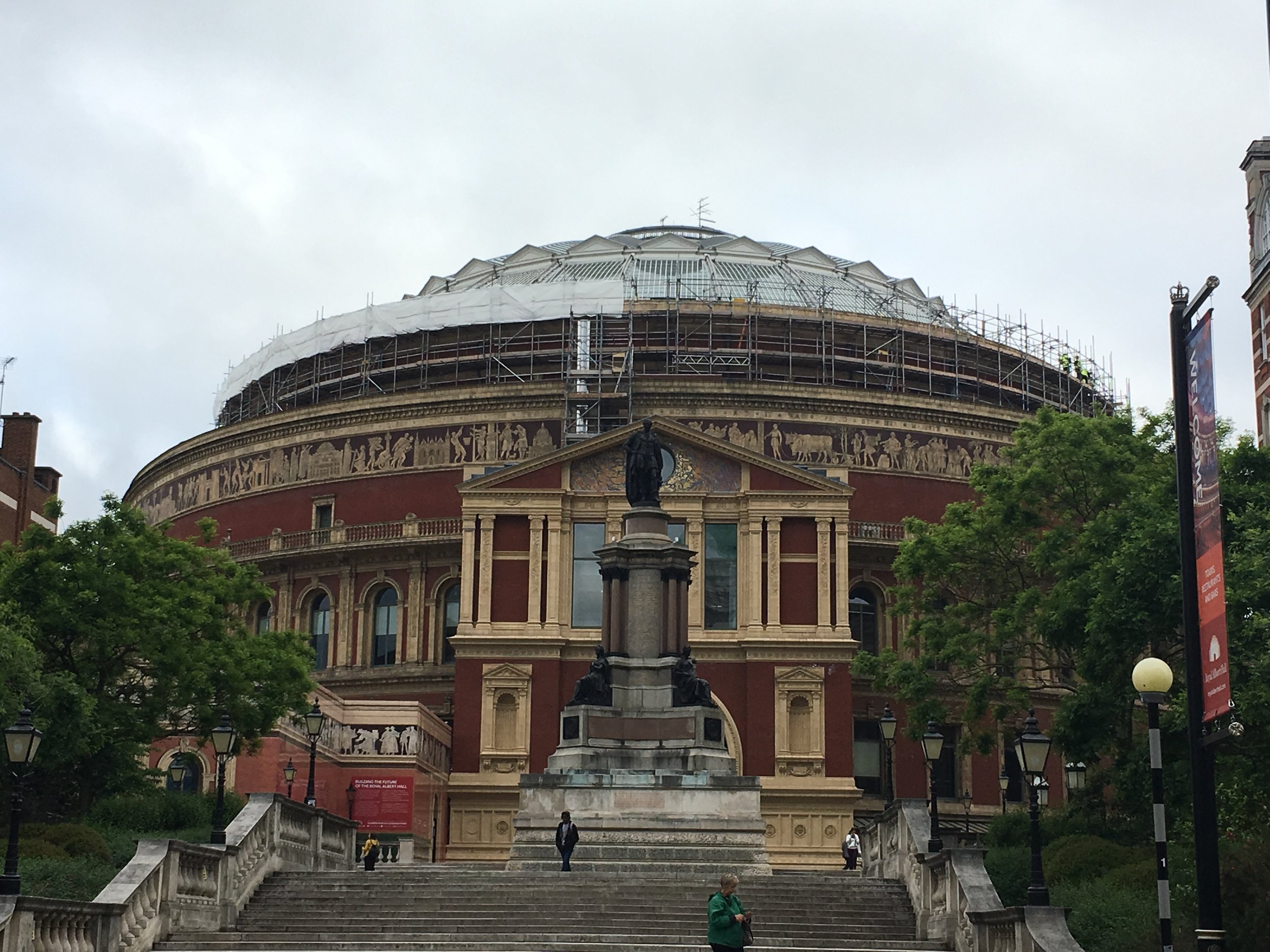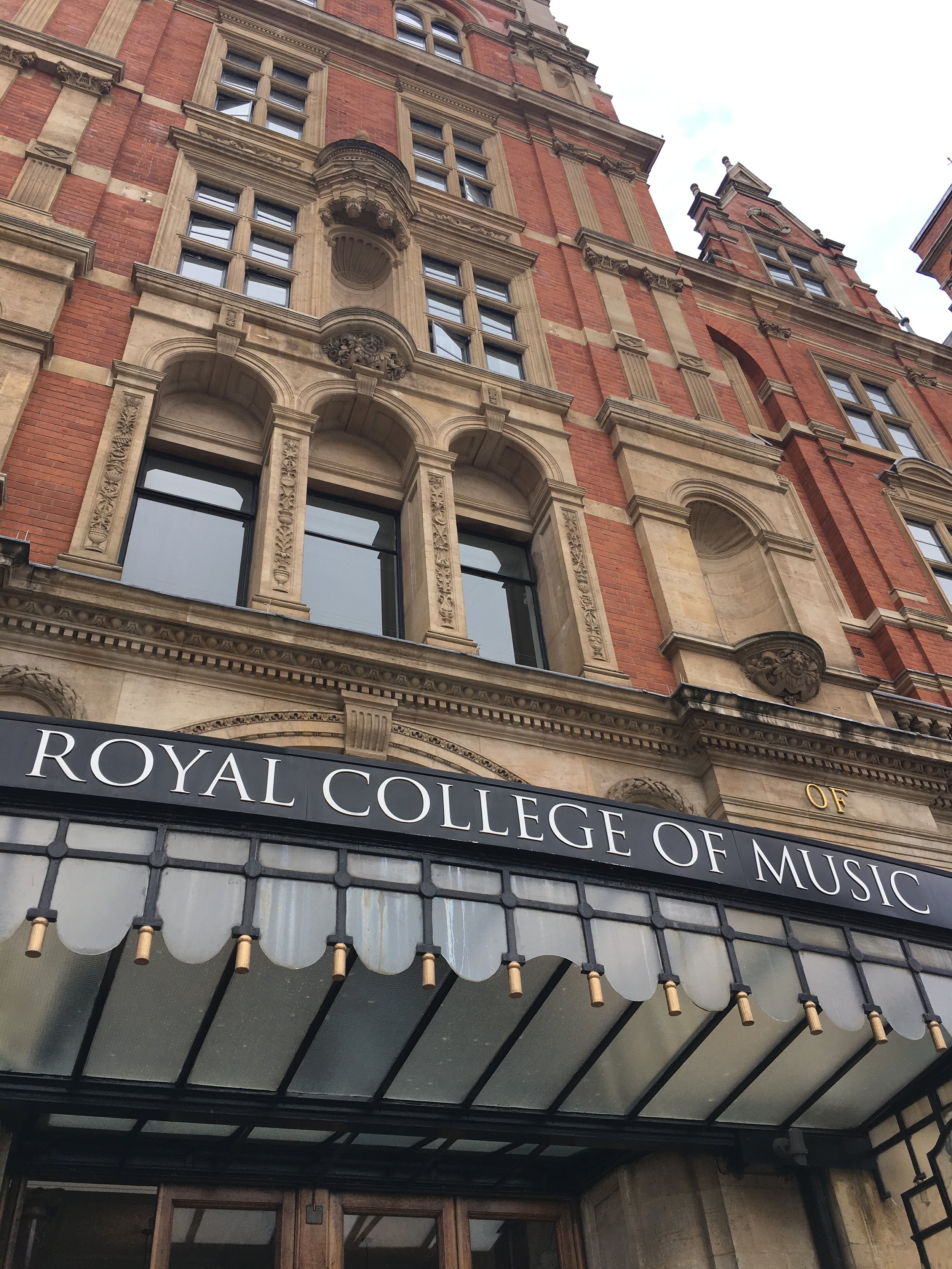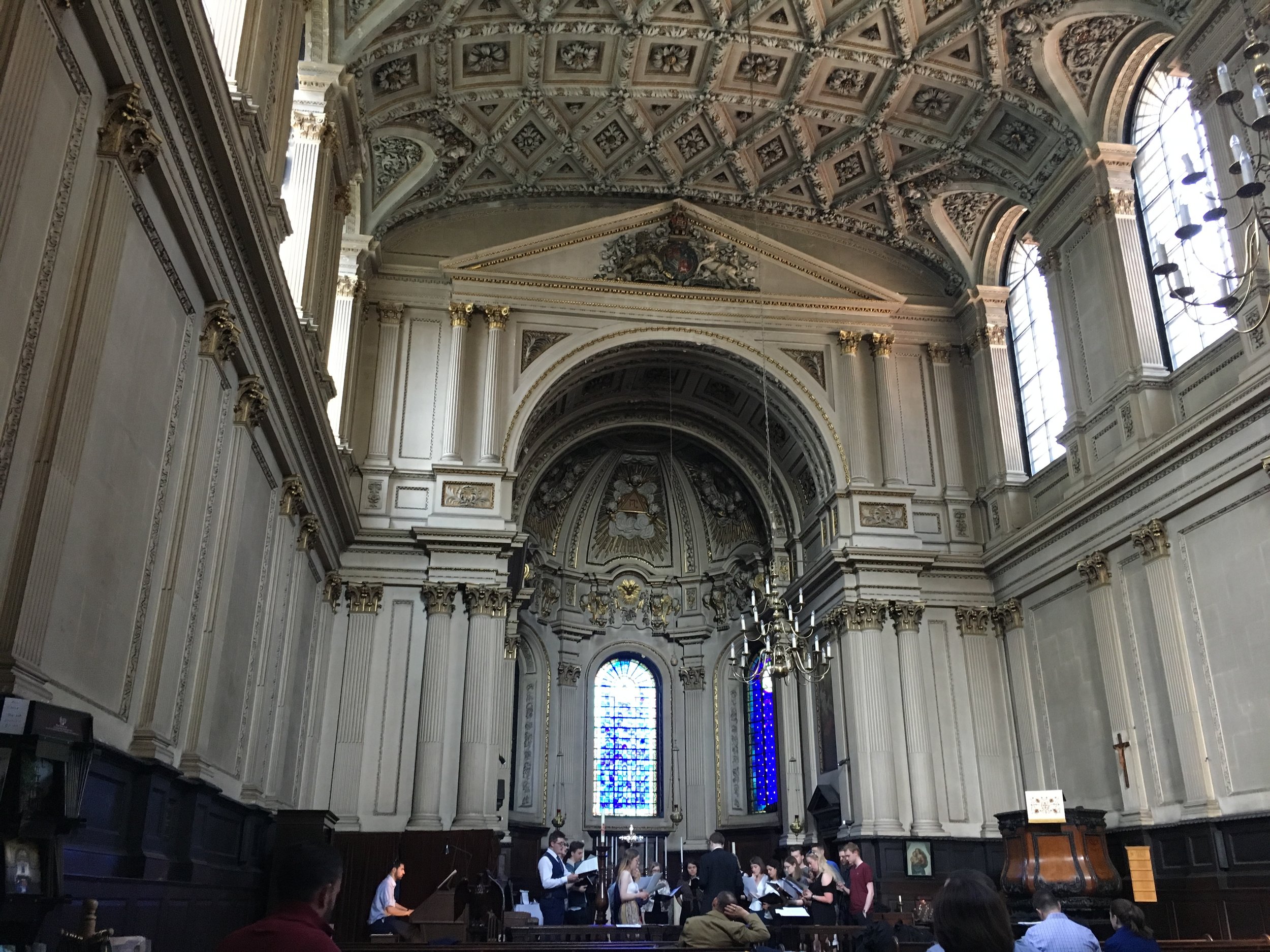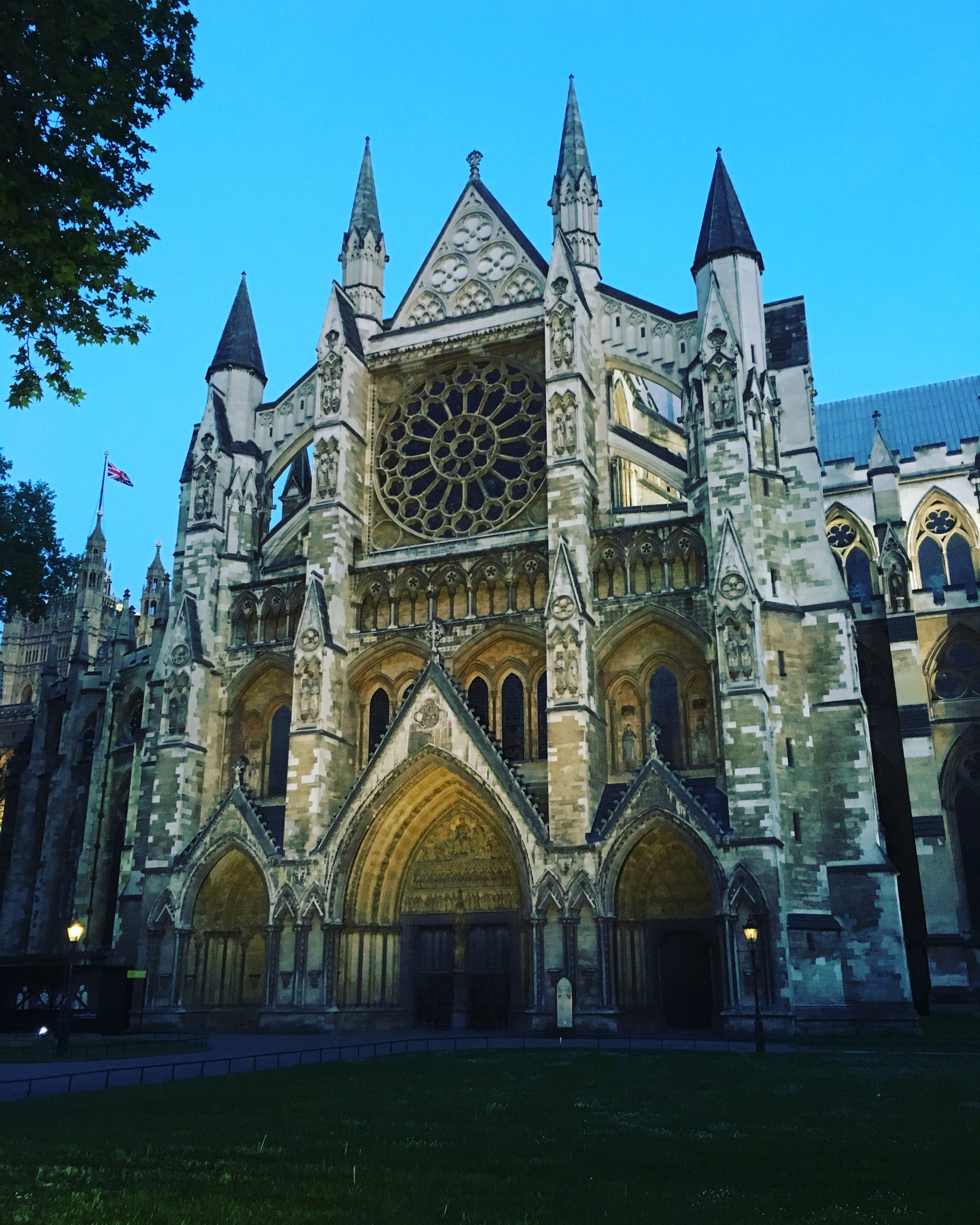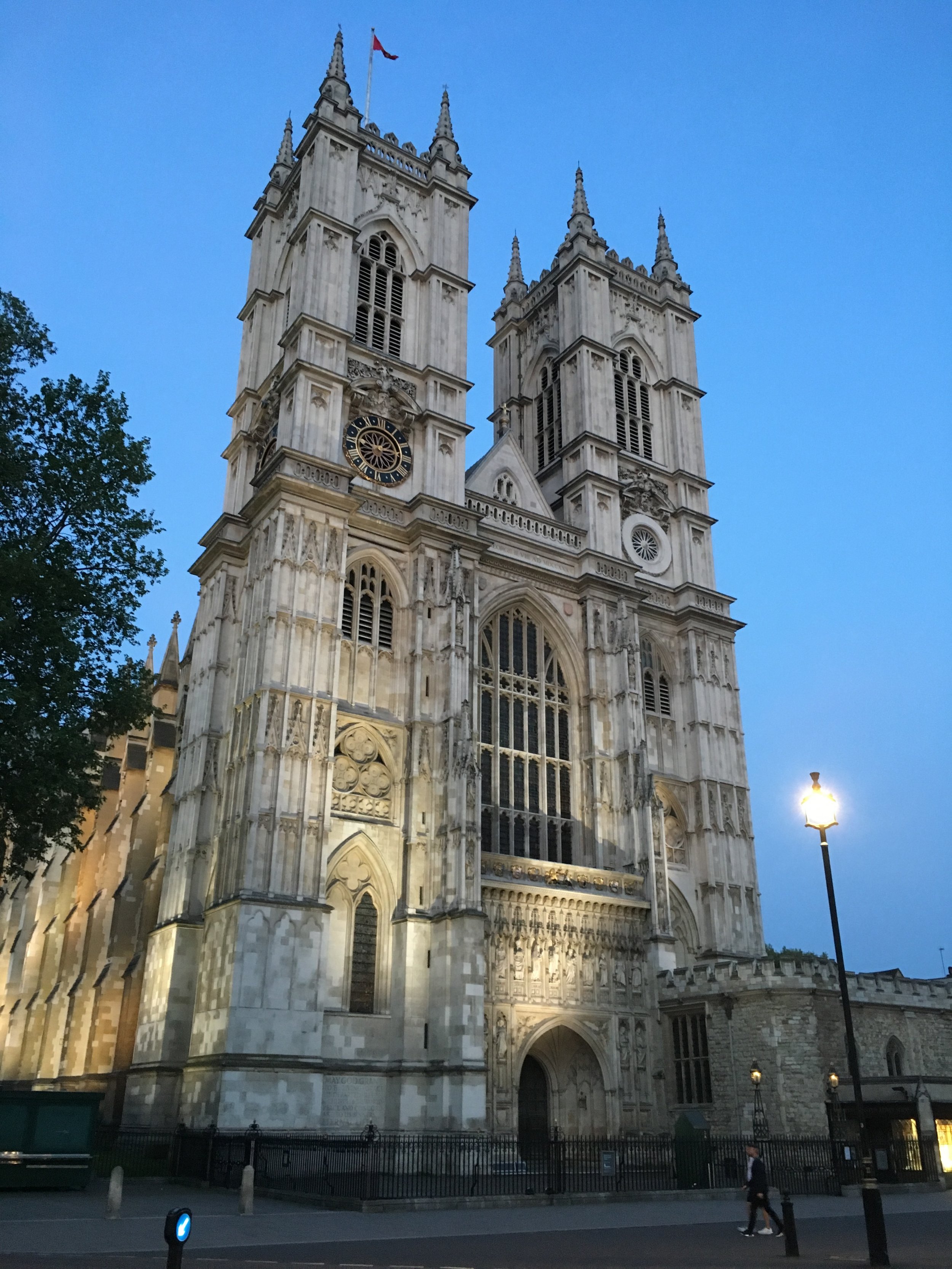
(Coming Soon) A New Music Community
I'm thrilled to share some exciting news with you! I am in the process of creating a brand-new membership community and resource site centered around Composition, Music Theory, and Musicology.
As I have thought about my musical journey - I learned so much more when my professors brought me alongside them in their work, rather than just sitting and listening to a lecture. I got to see the creative process in action as they worked through real-world problems. And that’s what I want to create.
What is the Membership Community?
This upcoming membership community is designed to be a unique blend of learning, training, and community, through direct access to my creative work in composition, theory, and musicology. It’s a place where passionate musicians can deepen their knowledge, explore new ideas, and connect with a supportive community of like-minded individuals. It’s a place where we can all get better at our craft, and become better musicians, together. The community would be built on four core values: community, accessibility, innovation, and discovery.
Community:
I’d like to create a vibrant network of musicians. Composition and music research can be very isolating activities. Communities are often only found in academic settings, but we can change that. Engage in meaningful discussions, ask questions, and support each other’s growth. No one has it all figured out - we can all become better musicians together.
Accessibility:
Whether you’re a veteran musician or brand new; a student or educator; a composer, a performer, or a researcher; the music resources in this membership are designed to be accessible to everyone. Gain insights from detailed courses, access exclusive content, and learn at your own pace. I want to give everyone the chance to improve and excel, regardless of their background, musical style, or experience level.
Innovation:
One of my personal goals is pursuing innovation. That includes my creative work, but it also means pursuing innovative approaches to learning and creating music. From advanced masterclasses to unique composition techniques, we will continually explore new methods to enhance our musicality.
Discovery:
Composition, Music Theory, and Musicology are all about curiosity and discovery. There's something thrilling about discovering a new chord you love, or finding easter eggs hidden in the music you're analyzing, or in asking questions about music and finding the answer. This is your opportunity to discover new perspectives and deepen your understanding of music.
What will membership look like?
Details are still being worked out, and I would like to take this site through a Beta testing phase (more details later), but here is what I’ve got so far:
Gold Tier:
Digital Resources
PDF guides/Ebooks, Curriculum guides/Lesson plans, Research Papers, Annotated Scores
Music Downloads
Solo sheet music/perusal scores, Singles/Albums/Stock Music
Community Access
Private Discord Server, Early Access, Priority for lessons, discount, behind the scenes
Platinum Tier:
All Gold Tier benefits plus full access to Exclusive Content:
Online courses
Masterclasses
Exclusive Video Content
Extended Cuts and Commentaries
Live Streams
Office Hours
First Priority for Lessons, Bigger Discount + Discounts on Composition Services
Get Involved early
As I work towards launching this new community, I invite you to be part of its creation. Your feedback and support are invaluable in shaping a membership that truly meets your needs. Here’s how you can get involved:
Express Your Interest: Send me an email and let me know if this idea excites you and you have interest in being a member. Would you like to be a beta tester? Let me know that too.
Provide Feedback: Send me an email and share your thoughts on what you’d like to see in the community.
Support Through Crowdfunding: There is so much work to be done to make this a reality. There's a lot of content to produce, and a lot of website that needs to be designed. It's a lot. So, I'm starting a crowdfunding campaign to bring this vision to life - I am hoping to raise $5,000 to cover the cost of creating the content, and to pay for the web designing that is needed. You can get free membership for anywhere from one month to lifetime access for your donation. Note: The Crowdfunding campaign ended on September 27.
join a thriving music community
[NEW CHOIR MUSIC] Nothing Gold Can Stay
I'm extremely happy to announce this one. Autumn is my favorite season - and last autumn I was sitting there wishing the weather could feel like that year round, when I happened upon a poem, Nothing Gold Can Stay, by Robert Frost that talks about how beautiful and fleeting the patterns of nature are.
This one is for SATB + Piano + Cello - great for High School, College, or Community Choirs.
If you're putting together your Fall Program right now, 1) send me an email at jesse@jessestrickland.com and I'll send you a perusal score - along with a MIDI realization, 2) please send this to any choir directors who need this in their program.
Nature’s first green is gold,
Her hardest hue to hold.
Her early leaf’s a flower;
But only so an hour.
Then leaf subsides to leaf.
So Eden sank to grief,
So dawn goes down to day.
Nothing gold can stay.
What Exactly I Do As A Composer
Usually when I tell people that I am a composer, they respond with “what does that mean, exactly?”
For me, it’s a wide range activities that are all related to writing music. Here are the things that I do on a regular basis as a composer (and yes, I’d love to work with you if one of these projects fits your needs):
- Custom Pieces. These come in the form of commissions, but also they are for sale on my website. I write mostly for choirs, church choir + orchestra, and classical chamber ensembles.
- Arrangements. This is taking existing material and “arranging” it in a new way. For example, taking a classic hymn and arranging it for a church orchestra.
- Orchestration. I’ll take a song that is already written and I’ll provide all of the additional instruments for it. This is particularly important in the church world, as each church has a different make up of their orchestra.
- Editing. Taking a piece from good to great. I do this either for my own works, or for hire for other composers.
- Engraving. This is editing the notation of a digital score so that it is ready to be sent to ensembles/performers. Again, I do this for my own scores, but also other composers.
- Writing and recording my own songs. That one seems a little more self-explanatory
There are plenty of other things I do (such as teaching and content creation), but these are all of the things that I do in regards to actually writing music.
If you are a music minister, an ensemble director, or a composer who has need for one of these services, please let me know! I’d love to work with you.
Scaling the Wall: A Composer's Guide to Overcoming Writer's Block
Check out my new eBook!
Even though there’s probably not any hard research on it, I feel pretty confident stating that exactly 100% of composer’s throughout the course of history have experienced Writer’s Block. Put it right there on the list of inevitables with death and taxes.
I know this is a topic on a lot of composer’s minds. Almost every single masterclass or lecture I’ve given to a group of composers, one of the questions at the end is always about dealing with writer’s block. It’s perhaps the question I get asked most often.
I have certainly dealt with it more times than I would like - I feel like my ADHD might impact the frequency. And somehow, each and every time it feels like reinventing the wheel to get out of it. So, for the last few years, I’ve been meticulously documenting exactly what has happened when I fell into writer’s block, what I did to get out of it, and what I did to maintain creativity.
And today, I’m excited to announce that I have compiled all of those strategies into a step-by-step guide, and I’ve put that guide into an eBook for all composer’s to use the next time they inevitably fall into writer’s block.
We’ll look at 1) how to get out of writer’s block, 2) the importance of mental health and creating a healthy relationship with your work, and 3) strategies for maintaining creativity.
All of the things in this eBook are strategies that I personally use in my daily life as a composer, and I think you will find this guide immensely helpful.
So if you are stuck in the pit of writer’s block, desperately looking for a ladder to scale the wall, check out this guide.
Making Rejection Your Ally
For musician of any sort, rejection is a common occurrence…and I’ll be honest, that sucks. Whether it's a rejection letter from a publisher or record label, a negative review from a critic, or not getting the gig you wanted, rejection can be a tough pill to swallow. But rejection doesn't have to be 100% bad. In fact, if you approach it with the right mindset, rejection can be a powerful ally to help you grow as a musician. So, today I want to give some tips I’ve learned on how to deal with rejection and use it to your advantage.
1. Don’t take it personally
First off, remember that it's not personal. I know that’s easier said than done. When you're rejected, it doesn't mean that you're a bad musician or that your music isn't good enough. It simply means that the person or organization that rejected you didn't see a fit for you at this particular time. I understand that doesn’t make it any easier. But. Remember that the music industry is subjective, and what one person likes, another person may not. So don't take rejection as a reflection of your talent or worth as a musician.
This is a rather difficult thing to do. What is more vulnerable than putting your art out into the world? More often than not, It’s not just something you made, but rather it’s a piece of you.
Let’s look at some of the more frequent causes of rejection:
Composition Competitions
Wow, do I have a lot of thoughts on composition competitions. Most of them are not relevant to this discussion so I’ll try to sort through what is pertinent. Each organization who puts together a competition like this probably has a particular sound in mind for the piece they’d like. If not, then you’re looking at dealing with the particular preference of the judges. Neither of these are a reflection on you as a composer.
I love watching cooking competitions. During the judging you’ll hear discrepancies like one judge saying “my meat is overcooked” or “it’s got too much salt for my liking”, and then the next judge will completely disagree with them and say that the dish was executed perfectly. In those moments, it’s hard not to think about composition competitions and the judging that goes on behind the scenes that the composers don’t know about. I have no idea what those judges are looking for - music is a subjective art, not an objective sport. Maybe that judge just wanted a little more chromaticism, a little less polyphony, or any number of other things.
Many of these competitions even require you to take your name off before you submit, so it’s really not personal in those cases. It still feels that way sometimes.
Labels and Publishers
I feel like it’s probably difficult to overstate how many submissions labels and publishers get from musicians on a daily basis.
I once sent in a choir piece to a music publisher that I was rather proud of. The choir who commissioned it had done a spectacular job with the premiere. I was encouraged by the director of that choir to send it to a particular publisher that they had a connection to. After months of waiting, I finally got a response: “This is a beautiful piece! I love it! Unfortunately, we are going to have to pass because we don’t think it will sell all that well.”
Sometimes it’s very obvious that you aren’t the correct fit with a label or a publisher. I’m probably not getting too many record deals by sending my demo off to a heavy metal label - and that doesn’t cause me any pain. It’s when it seems like you would be a good fit, and the executives disagree that this gets hard.
University Music Programs
I’m not even going to pretend that I have even a 1% understanding of the university admissions process. But it’s definitely a common source of rejection among musicians.
Concluding this section: Some composers specifically try to get rejected a certain number of times per year. This does a few things: 1) it’s proof you’re putting yourself out there, 2) gives you a better chance of being accepted for something, and 3) firmly accepts rejection as an unavoidable reality, and in so doing that takes away some of its sting.
2. Look for constructive criticism
Okay, it’s one thing to not take it personally, and just shrug it off, but how can we use that rejection to move forward? One of the worst parts of most rejections letters is that there is absolutely no comment about why you were rejected. It feels like you sent your music to a magic 8 ball and it just responded “you lose, try again.” But. There are those times where we do receive comments that go along with the rejection; and that’s when we really need to take an honest look at what suggestions have been offered. I will be honest and say that I spent a lot of the first decade of my career dismissing suggestions I was given because they just ‘didn’t understand’ the piece. Yeah, that was dumb.
Look for any constructive criticism that can help you improve. This may come in the form of feedback from a record label or producer, or it may be in the form of a negative review that points out specific areas that need improvement - or even from a performer who played your piece. While it can be tough to hear criticism about your music, try to take it as an opportunity to learn and grow. Look for the nuggets of truth in the criticism and use them to make your music better.
What to keep, and what not to
This is a really tough question to answer. I would say there are kind of three categories of responses to criticism?
What you immediately should dismiss.
Is it constructive? If not, get rid of it. If you implemented that suggestion, would it go against who you are as a composer? If so, dismiss it. Like I said earlier, deciding what to dismiss can be a hard rope to balance on (mostly from youthful arrogance), but over time I think it becomes easier to recognize what you should immediately dismiss.What you should implement right away.
If your comments said something like “violins can’t play this passage,” or, “This notation is unreadable”, or “You forgot to transpose your horn part” (all comments I’ve gotten) - fix those things immediately. These have less to do with your musicality, and are more technical in nature. Always take those as a learning opportunity, and try your hardest to not make those mistakes twice.What you should file away for later.
I think the majority of feedback we get on our music falls in this category. Maybe we didn’t fully understand the suggestion at the time, but after some thought, it was correct. Or, maybe it was a suggestion that you a little uncomfortable hearing, but then thought “what if I did experiment with trying that?” I think a lot more of the comments we receive are applicable to us than we may think at first.
3. What can you do better?
The unpleasant truth is that rejection can be a valuable learning experience. Take some time to reflect on what went wrong and how you can improve for next time. Did you not prepare enough for the audition or interview? Did you not have the right materials or press kit? Did you not research the organization or individual enough before approaching them? If you know of the specific reason for the rejection, use it as a learning opportunity to make sure you're better prepared next time. Of course, sometimes you do everything right and it still doesn’t work out…so for that, refer back to section 1.
An opportunity for Improvement
As artists, our relentless pursuit should be in getting better at our art. Rejection and criticism offers us that very chance. And it gives us a perspective that is very different than our own. Blind spots are notoriously hard to see.
What if your favorite part of the song is the very thing that is making the song not work? You’ve got to be willing to part with it. Cut your best material if it isn’t right for the piece (but don’t throw it away, find some other, better suited spot for it).
Teachability
A lot of it comes down to how teachable you are willing to be. It’s like a parent who insists their child can’t be the problem because their child is perfect. You’re going to miss a lot of opportunities for improvement based on how willing you are to change what needs to be changed, and to learn what needs to be learned.
Practice.
Every musician hears this every single minute of our lives, so I won’t linger here too long. But, yeah. Practice your craft. And I’ll turn the mirror back at me and tell me to practice my craft too.
4. Stay positive
It's easy to get discouraged after being rejected, but it's important to stay positive. Remember that rejection is a part of the music industry, and every successful musician has faced rejection at some point. Use rejection as motivation to work harder and improve your music. Focus on the positive feedback you've received and the progress you've made so far. Remember why you started making music in the first place, and let that passion drive you forward.
The value of your music
Here’s the truth: your music has intrinsic value by the very fact that you saw enough value in it to make it in the first place. And there is an audience for it. I also know how difficult it is - even with how connected we are through the internet - to find that audience. Someone is out there, who upon finding your music will say “wow, I wish I had known about this sooner.”
5. Keep moving forward
Finally, don't let rejection stop you from pursuing your dreams. Keep moving forward and continue to make music. Remember that success in the music industry often comes after many rejections and setbacks. Keep honing your craft and seeking out new opportunities. The more you put yourself out there, the more chances you have of finding success.
Start on the next one.
There’s a great scene in “Tick, Tick Boom” where Jonathan Larson (played by Andrew Garfield) has just had a successful musical workshop, but didn’t receive any offers for his musical to be produced. He asks his agent “what should I do now?” or something to that effect, and she simply responds: “Get to work on the next one.”
Conclusion
Remember first and foremost that rejection is subjective. What one person may reject, another person may embrace. Keep that in mind as you continue to pursue your music career. Don't let rejection define you or your music. Keep creating, keep learning, and keep pushing forward. Eventually, I believe your hard work and perseverance will pay off.
Use rejection as an opportunity to learn and grow, and don't take it personally. Look for constructive criticism, learn from the experience, stay positive, and keep moving forward. With these tips, you can turn rejection into an ally to help you achieve your musical goals.
Postcards
I’ve started a new instrumental composition series. Each piece in the series is written based on a photo that I took somewhere on this planet.
I’ve started a new instrumental composition series. Each piece in the series is written based on a photo that I took somewhere on this planet. In addition to the photos being a good creative prompt, each of them are meaningful memories to me. I’m planning for the first collection to have 10 Postcards.
I’ve got the first two here for you.
The first I took on the Little Platte River in Nebraska at our campground. As far as the music goes, the story is Sunset on the Little Platte River in Nebraska. Sleep is calling, but an active mind initially resists, but eventually succumbs.
The second is from the Upper West Side in New York City. It's called the city that never sleeps, so perhaps aptly, I took this photo at 2am the night from the roof of my building. Fun Fact, the photo was taken in late January, and you can still clearly see a Christmas Tree in one of the window on the right.
Afton Water Premiere
I'm excited to share with all of you a brand new world premiere! This is a choir piece I wrote back in 2019 for a commission that fell through. I liked the project enough that I went ahead and finished it. Fast forward to now, it received its world premiere back in December by the Armstrong Youth Chorus in Oklahoma under the direction of Mark Jenkins. Hope you enjoy!
Click here for the sheet music!
I'm Moving To New York!
I finally have an answer to the question “What are you doing after grad school”
A lot of you have asked me what I’m doing when I finish grad school. And I usually hate that question. Except now I have an answer to it!
This has been a few months in the making, but it is still really new. Back in March, a friend of mine who is a pastor of a church plant in Queens, NY called me and asked if I would be willing to come and serve as the Director of Music and Media. After praying about it for about two weeks, I accepted and began the long process of getting ready to leave South Carolina and move to New York. I’m really excited about the position I will hold up there, but also because New York is such a great city for a musician to be. Just about every kind of music imaginable is happening there.
The plan is for me to arrive in New York in early August - we’ll see if that actually happens. That being said, I’m super excited to work with ensembles and musicians in New York - so if you’re in the area, let me know if you want to collaborate!
England Highlights
I went to England. It was pretty cool.
I went exploring in England with a group of Choral grad students from the University of South Carolina, and LSU. We got to study the rich tradition that is Sacred British Choral music. I highly recommend it. Also, we poked our head into Paris for a second.
Here are some highlights.
Ireland Premiere
On tour with the South Carolina Concert Choir in Ireland!
I’m with the South Carolina Concert Choir over in Ireland for two weeks. The most exciting part about that, is that Hymn of Habakkuk - a choir piece I wrote back in 2014 - is getting its European premiere! It is being performed in three different cathedrals in three different cities. Which is very exciting. Below is the video of the performance in Galway. Thanks to the Concert Choir for their hard work on this piece. Y’all sound great. And yes…that is me on the right side of the screen.


![[NEW CHOIR MUSIC] Nothing Gold Can Stay](https://images.squarespace-cdn.com/content/v1/588ed41937c5818a6a0b577b/1719952741346-SS27G439T6YOX2RROGNV/IMG_3778.jpg)
